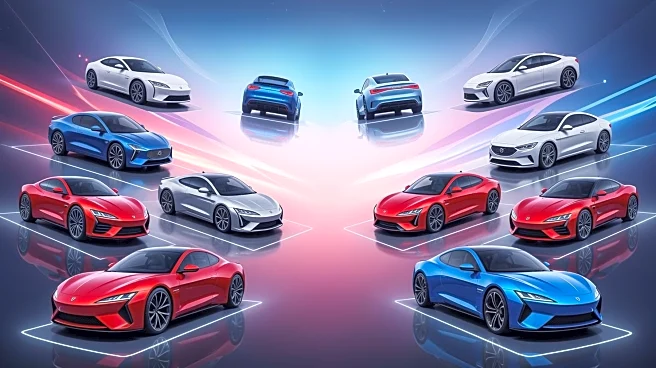What's Happening?
Recent data indicates that auto shows are playing a significant role in driving car sales, despite a projected market decline of 3 to 6.9 percent in October. This downturn is attributed to a decrease in electric
vehicle (EV) demand following the expiration of federal tax credits. The forecasts from J.D. Power-GlobalData and Cox Automotive highlight this trend, as traditional automakers like Toyota, Ford, Honda, and Kia have seen sales increases, while brands such as Hyundai, Subaru, and Mazda have experienced volume dips. The data suggests that consumer interest in conventional vehicles remains strong, even as the market adjusts to changes in EV incentives.
Why It's Important?
The decline in EV demand following the expiration of federal tax credits underscores the significant impact of government incentives on consumer purchasing decisions. This shift could influence automakers' strategies, potentially leading to a reevaluation of their EV production and marketing plans. The continued interest in traditional vehicles suggests that consumers may prioritize cost and availability over environmental considerations when incentives are reduced. This trend could affect the pace of the automotive industry's transition to electric vehicles, impacting environmental goals and the future of sustainable transportation.
What's Next?
Automakers may need to adjust their strategies to address the changing market dynamics. This could involve lobbying for renewed or new incentives to boost EV sales or increasing the focus on marketing traditional vehicles. Additionally, the industry might see increased competition among automakers to capture the remaining market share in a declining sales environment. Stakeholders, including policymakers and environmental groups, may also push for new measures to support the EV market and ensure progress towards sustainability goals.










